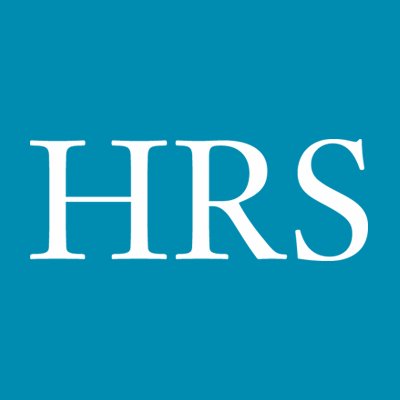Welcome to HRS

Description: The Health and Retirement Study (HRS) COVID-19 survey is a longitudinal study of people aged 51 and older and their partners, living in private households in the United States. Its sample was drawn from a nationally representative cohort, the Health and Retirement Study. The survey elicits information about COVID-19 testing, COVID-19 avoidance behavior, health, healthcare utilization, employment, income and spending, and social networks.
:modal
The HRS COVID-19 sample is a nationally representative sample of the population aged 51 years and older, living in private households in the United States. The initial sample was recruited in 2020 from half of the random sample of households who were originally assigned to complete the enhanced face-to-face interview (EFTF) during the 2020 HRS survey.
| Age Eligibility | Age 51 and older |
|---|---|
| People Interviewed per Household | One age-eligible individual and their spouse of any age who participated in a previous wave of HRS |
| Representativeness | Nationally representative |
The HRS COVID-19 interviews were carried out using computer-assisted telephone interviewing (CATI) starting in June 2020.

The HRS COVID-19 Wave 1 sample included 2,367 households containing 3,266 individuals and their spouses.

HRS COVID-19 data can be linked to the COVID-19 US State Policy Database, a resource created by Boston University that contains state-wide policies related to COVID-19 mitigation and control. HRS COVID-19 data can also be linked to HRS. HRS includes linkages to administrative data. HRS respondents are asked for permission to link to official records of Social Security earnings and benefits, Medicare claims, and Veteran’s Affairs healthcare utilization.
| Mortality | National Death Index |
|---|---|
| Earnings and Benefits | Social Security Administration |
| Pension | Respondent's employer |
| Healthcare utilization among respondents with prior military service | Veteran’s Affairs |
| Medicare Claims | Centers for Medicare and Medicaid Services |
Most public access HRS COVID-19 data can be downloaded from the University of Michigan. There are three levels of access available: 1) public, 2) sensitive, 3) restricted. The public data are anonymized and only require registration with the University of Michigan. The sensitive data include certain health-related variables, such as HCAP and blood-based biomarkers, and require additional approval. The restricted data include sensitive and/or confidential information, such as administrative linkages and geographic information, and are only available via secure remote access or under a license.
| HRS COVID-19 interview Self-completion survey | University of Michigan |
|---|---|
| COVID-19 US State Policy Database | University of Michigan |
| HRS | University of Michigan |
| Genetic data (genotype) | National Center for Biotechnology Information |
| Medicare claims | Centers for Medicare and Medicaid Services |
The Gateway to Global Aging Data has created a user-friendly dataset based on HRS COVID-19 data designed to allow researchers to conduct cross-round and cross-study analysis.
| Harmonized HRS COVID | A dataset of research-ready variables derived from the COVID-19 interview of Wave 1. | Coming soon |
|---|